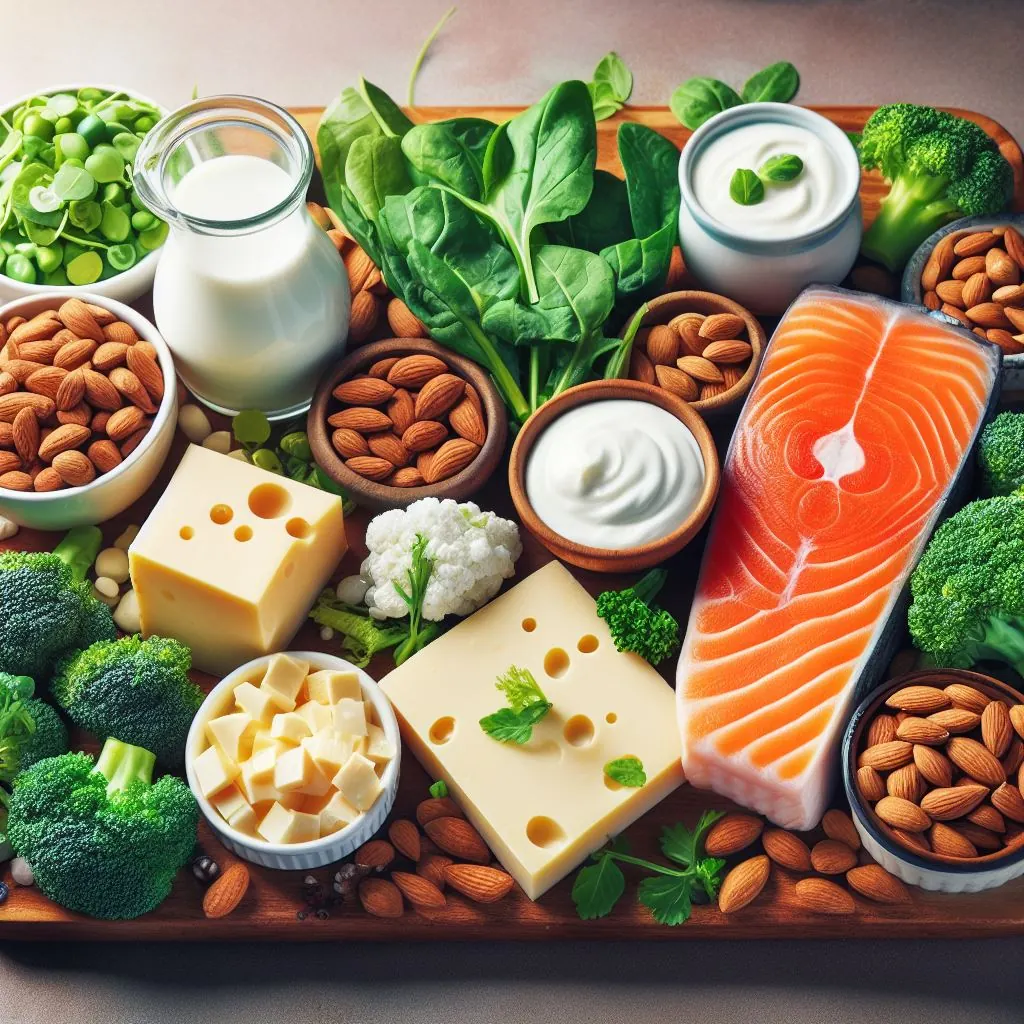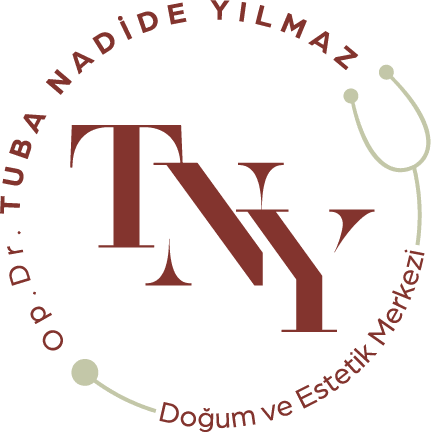Maintaining a healthy diet during pregnancy is of great importance for both the mother and the growing baby. A well-balanced diet ensures that the expectant mother receives all the essential nutrients needed for her own health and supports the development of the fetus. Proper nutrition during pregnancy can help prevent complications, promote healthy weight gain and reduce the risk of birth defects.
Eating a nutritious diet during pregnancy provides the building blocks for fetal growth and development. It is very important to include a variety of nutrient-rich foods in your daily meals. This means including foods from all food groups, including fruits, vegetables, whole grains, lean proteins and dairy products. These foods provide essential vitamins and minerals such as folic acid, iron, calcium and omega-3 fatty acids.
In addition to focusing on what to eat during pregnancy, it is equally important to be careful about what to avoid. Some foods and substances can pose a risk to both mother and baby. For example, raw or undercooked meats should be avoided due to the potential risk of bacterial contamination. Similarly, unpasteurized dairy products should be avoided as they may contain harmful bacteria such as Listeria.
Staying hydrated is another important aspect of maintaining a healthy diet during pregnancy. Drinking enough water helps support various body functions and prevents dehydration. Pregnant women should aim to drink at least 8-10 glasses (64-80 ounces) of fluids per day. Water is an excellent choice, but other options such as herbal teas or infused water can also contribute to hydration.
Listening to your body's needs is very important when it comes to maintaining a healthy diet during pregnancy. Pregnancy can cause changes in appetite and cravings. It is important to pay attention to these tips when making careful choices about what you eat. If you experience morning sickness or food avoidance, try to find alternative sources for essential nutrients or consult a health professional for guidance.
Tips for a Balanced Diet
It is very important to maintain a balanced diet during pregnancy to ensure the health and well-being of both mother and baby. A balanced diet provides all the nutrients, vitamins and minerals needed for proper growth and development. Here are some tips to help you eat a balanced diet during pregnancy:
Include a Variety of Fruits and Vegetables
Fruits and vegetables are packed with essential nutrients such as vitamins, minerals, fiber and antioxidants. Aim to include a variety of colorful fruits and vegetables in your daily meals. These include green leafy vegetables such as spinach and kale, citrus fruits such as oranges and grapefruit, strawberries, broccoli, carrots, bell peppers and sweet potatoes. Eating a wide variety of fruits and vegetables ensures that you get a wide range of nutrients that are vital for your baby's development.
Choose Whole Grains Instead of Refined Grains
Whole grains provide more fiber, vitamins, minerals and antioxidants than refined grains. They also have a lower glycemic index, which helps control blood sugar levels. Choose whole grain options such as whole wheat bread, brown rice, quinoa, oats, barley and whole grain pasta. These not only keep you feeling fuller for longer, but also provide essential nutrients such as B vitamins and iron.
Include Lean Proteins in Your Meals

Yağsız proteinler, bebek gelişimi için önemlidir
Protein is an important nutrient during pregnancy as it plays a crucial role in the growth of your baby's organs and tissues. Choose lean protein sources such as poultry (chicken or turkey), fish (low-mercury options like salmon or trout), eggs, legumes (beans or lentils), tofu or tempeh. Including protein-rich foods in your meals will help support the proper development of the fetus.
Add Healthy Fats

Sağlıklı yağlar, bebeğinizin beyin gelişimi için gereklidir.
Healthy fats are essential for the development of your baby's brain and nervous system. Include sources of healthy fats such as avocado, nuts and seeds, olive oil and oily fish such as salmon or sardines. These fats provide omega-3 fatty acids, which are very important for your baby's brain development.
Ensure Adequate Calcium and Iron Intake

Kalsiyum ve demir, bebek ve anne sağlığı için kritiktir.
Calcium is essential for the development of your baby's bones and teeth, and iron is needed for the production of red blood cells that carry oxygen to both you and your baby. Eat calcium-rich foods such as dairy products (milk, yogurt, cheese), leafy green vegetables (spinach, kale) and fortified plant-based milk alternatives. Good sources of iron include lean meat, poultry, fish, legumes, tofu, spinach and fortified cereals. Consider talking to your health care provider about supplementation if needed.
Monitor Your Calorie Intake
During pregnancy, it's important to eat extra calories to support your baby's growth. However, this does not mean eating for two. The number of additional calories needed varies depending on individual factors such as pre-pregnancy weight and activity level. It is best to consult a health care professional or registered dietitian who can provide personalized guidance on calorie intake during pregnancy.
By following these tips for a balanced diet during pregnancy, you can ensure that you are providing your body with the essential nutrients it needs to support a healthy pregnancy and the optimal development of your baby. Remember to listen to your body's cues and make adjustments as needed. Eating well during pregnancy lays the foundation for a lifelong healthy life for you and your baby.
Foods and Substances to Avoid
During pregnancy, it is important to be mindful of foods and substances that should be avoided to ensure the health and well-being of both mother and baby. By avoiding certain substances, expectant mothers can reduce the risk of complications and have a healthy pregnancy. Here are some essential foods and substances to avoid during this special period:
Raw or undercooked meats and seafood: Raw or undercooked meat, such as sushi or rare steak, can harbor harmful bacteria such as salmonella, listeria and toxoplasma. These bacteria can cause foodborne illnesses that can have serious consequences for both the mother and the developing baby. It is important to cook all meats and seafood thoroughly before consumption to eliminate potential risks.
Limit caffeine intake: While it may be tempting to reach for a cup of coffee or tea to recharge during pregnancy, it is important to limit caffeine intake. High levels of caffeine have been linked to an increased risk of miscarriage and preterm labor. It is recommended to consume no more than 200 milligrams (mg) of caffeine per day, which is equivalent to about a 12-ounce cup of coffee.
Avoid alcohol and tobacco: Alcohol and tobacco should be completely avoided during pregnancy because of their harmful effects on fetal development. Drinking alcohol during pregnancy increases the risk of fetal alcohol spectrum disorders (FASD), which can lead to physical, mental, behavioral and learning difficulties in the child. Smoking or exposure to secondhand smoke also increases the risk of low birth weight, premature birth, stillbirth, Sudden Infant Death Syndrome (SIDS) and developmental problems.
Minimize consumption of processed and high-sugar foods: Processed foods often contain additives, preservatives and artificial ingredients that may not provide adequate nutritional value for both mother and baby. In addition, excessive consumption of high-sugar foods can contribute to gestational diabetes and excessive weight gain during pregnancy. It is important to focus on whole, nutrient-dense foods that provide essential vitamins, minerals and fiber.
Beware of certain species of fish: While fish is a valuable source of omega-3 fatty acids and other nutrients, some species can contain high levels of mercury, which can be harmful to the baby's developing nervous system. Pregnant women should avoid shark, swordfish, king mackerel and tilefish because of their high mercury content. Instead, opt for low-mercury options such as salmon, trout, shrimp and canned light tuna.
By paying attention to these foods and substances to avoid during pregnancy, expectant mothers can take proactive steps to ensure a healthy diet for themselves and their baby. It is essential to prioritize the consumption of nutrient-rich foods that provide essential vitamins and minerals, while minimizing exposure to potential risks. Remember to consult a health care professional for personalized guidance on maintaining a healthy diet throughout pregnancy.
Staying Hydrated
It is very important to stay hydrated during pregnancy as it plays a vital role in supporting the health and development of both mother and baby. Adequate hydration helps to maintain proper blood volume, regulate body temperature, support nutrient transport and ensure healthy digestion.

Yeterli su içmek, anne ve bebek sağlığını destekler.
Institute of Medicinerecommends that pregnant women drink about 10 glasses (2.3 liters) of fluids a day. This includes fluids from all sources, such as water, milk, juice and even foods with a high water content, such as fruits and vegetables. However, it is important to remember that individual needs may vary depending on factors such as activity level, climate and general health.
To increase your water consumption during pregnancy, consider carrying a water bottle with you wherever you go. This will serve as a constant reminder to drink water throughout the day. You can also flavor your water with fruits or herbs for added flavor. Some popular options include lemon slices, cucumber slices or mint leaves.
Another useful tip is to set reminders on your phone or use an app that keeps track of your fluid intake. This can be especially useful if you tend to forget to drink enough water throughout the day.
It's also worth noting that staying hydrated doesn't always mean drinking plain water. Other drinks such as herbal teas and coconut water can also contribute to your daily fluid intake.
In addition to increasing your fluid intake, it is also important to listen to your body's thirst signals. If you feel thirsty, this is a sign that you need more fluids. Also, watch out for other signs of dehydration, such as dark urine or feeling tired.
Listening to Your Body's Needs
During pregnancy it is very important to listen to your body's needs and adjust your diet accordingly. Your body is going through a lot of changes and it is important to pay attention to hunger and satiety cues to ensure you are getting the nutrients you and your baby need. Here are some tips on how to listen to your body's needs during pregnancy.
First, it is important to realize the importance of paying attention to hunger and satiety cues. Pregnancy can cause fluctuations in appetite, so it is very important to pay attention to when you are really hungry or full. This means eating when you feel hungry and stopping when you feel comfortably full. It may take some practice, but paying attention to these tips will help you ensure adequate nutrition for yourself and your growing baby.
Eating small, frequent meals throughout the day can also help you listen to your body's needs during pregnancy. Instead of three large meals, opt for five or six small meals spread evenly throughout the day. This not only aids digestion, but also provides a steady supply of nutrients for both you and your baby. It can also help relieve common pregnancy symptoms such as nausea or heartburn by preventing an empty stomach.
Handling cravings in a healthy way is another aspect of listening to your body's needs during pregnancy. While it is normal to experience cravings during this time, it is important to make careful choices when satisfying them. Instead of reaching for unhealthy snacks or processed foods, try finding healthier alternatives that still satisfy your cravings while providing nutritional value. For example, if you're craving something sweet, opt for a piece of fruit or a yogurt parfait instead of sugary sweets.
Also, considering dietary changes for common pregnancy symptoms can greatly contribute to meeting your body's needs. Many expectant mothers experience symptoms such as morning sickness or constipation during pregnancy. Making adjustments, such as eating smaller meals more often or increasing fiber intake, can help alleviate these symptoms and ensure you are getting the nutrients you need. Consulting a healthcare professional or registered dietitian can provide personalized advice based on your specific needs and symptoms.
Conclusion
In conclusion, maintaining a healthy diet during pregnancy is crucial for the health of both the expectant mother and her developing baby. Throughout this blog post, we have discussed a few important tips that can help ensure a balanced and nutritious diet during this special period.
First of all, it is very important to prioritize a balanced diet that includes a variety of nutrient-rich foods. This means including plenty of fruits, vegetables, whole grains, lean protein and healthy fats in your meals. By doing this, you can provide your body with the essential vitamins, minerals and antioxidants it needs to support a healthy pregnancy.
It is also important to be aware of certain foods and substances that should be avoided during pregnancy. These include raw or undercooked meats and seafood, unpasteurized dairy products, deli meats, caffeine, alcohol and high-mercury fish. By avoiding these potential hazards, you can reduce the risk of foodborne illness or harmful effects on your baby's development.
Staying hydrated is another important aspect of maintaining a healthy diet during pregnancy. Drinking enough water every day helps regulate body temperature, aids digestion and nutrient absorption, prevents constipation and promotes overall health. It is recommended that you aim to drink at least eight glasses (64 ounces) of water a day.
It is also very important to listen to your body's needs during pregnancy. Your appetite may fluctuate due to hormonal changes or morning sickness. It is important to listen to your body's hunger signals and eat when you are hungry. However, it is equally important not to overeat or overindulge in unhealthy cravings. Moderation is very important.
In conclusion, following these tips for healthy eating during pregnancy can contribute significantly to the well-being of both mother and baby. However, it is important to note that each woman's nutritional needs may vary depending on factors such as age, pre-pregnancy weight, underlying health conditions or pregnancy-related complications. Therefore, it is always recommended to consult a healthcare professional or registered dietitian for personalized nutritional advice.
Remember, your baby's health starts with the choices you make about your own health. By nourishing your body with a balanced and nutritious diet, you are providing the best possible environment for your baby to grow and develop. Embrace this special time in your life and enjoy the journey to motherhood while prioritizing your health through healthy eating habits.











